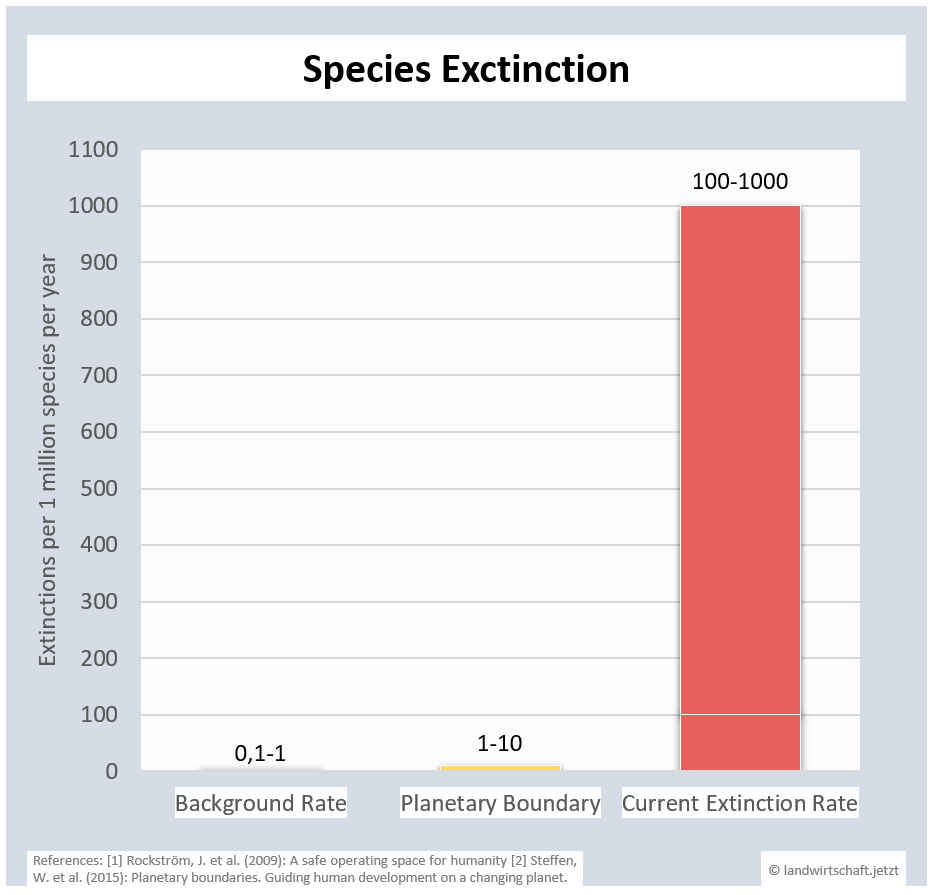Exceeding the planetary boundary for species and biodiversity loss alone can make the Earth uninhabitable for humans. The metric for the Planetary Boundary according to the Stockholm Resilience Center is extinctions per 1 million species per year [46]. The current extinction rate exceeds this limit by 1000% - 100000%. [44][46].
Die Effekte eines Wechsels zu einem pflanzenbasierten Ernährungssystem auf das Artensterben und den Verlust der Biodiversität sind nicht direkt quantifizierbar. Die Ursachen sind vielfältig und meist wechselwirkend. Die Hauptursache sind jedoch Landnutzungsänderungen. 3% der globalen Landnutzungsänderungen erfolgten für Dörfer, Städte und Straßen, 21% für Pflanzenbau für Menschen und 76% für die Tierhaltung. Die Tierhaltung ist mit Abstand die größte direkte Ursache für Habitatzerstörungen. Mit einem Wechsel auf ein pflanzenbasiertes Ernährungssystem können 74% aller anthropogenen Habitatnutzungen rückgängig gemacht werden. Hinzu kommt, dass ohne Tierhaltung die Frischwasserverbräuche, die Emissionen von eutrophierenden und versauernden Substanzen, der Einsatz von Pestiziden und der Wildtierhandel stark zurückgehen.
The links between animal agriculture, species extinction, and biodiversity loss are detailed here and here.

